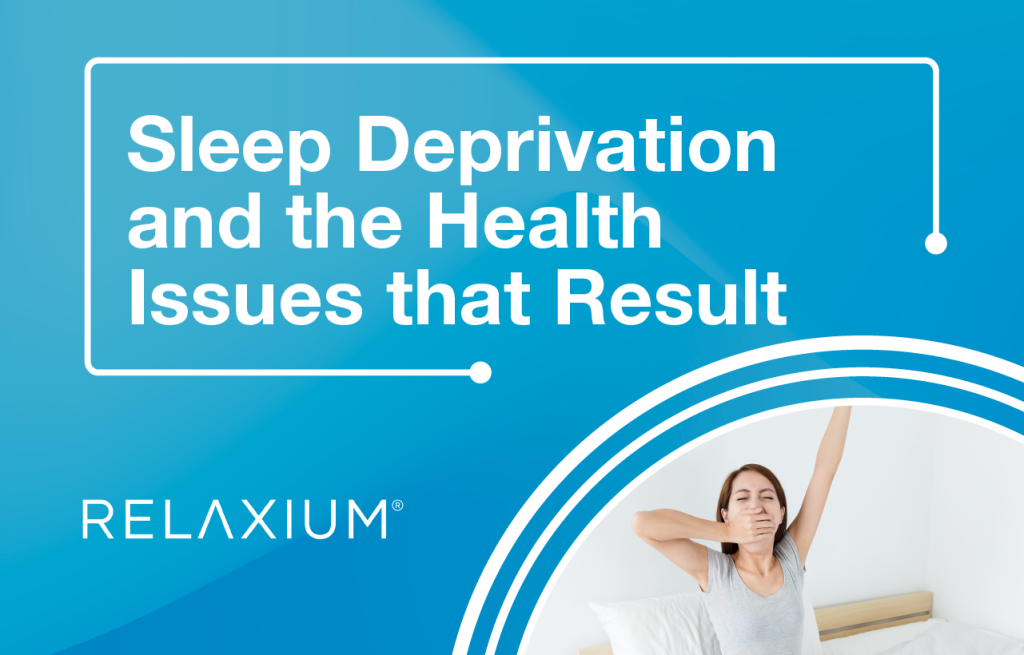What is Sleep Deprivation?
Sleep deprivation is often defined differently, depending on where you look. The most broad form of the definition is simply the situation or condition of suffering from lack of sleep. Various studies have found different information regarding just how many hours of sleep results in sleep deprivation. The most common classification is between seven or six or fewer hours of sleep as the cutoff. Sleep deprivation can result from a number of different factors, including sleep disorders, illness, sudden changes in schedule, stress, or aging. You may be sleep deprived if you’re feeling tired, irritable, fatigued during the day, or yawn more frequently than normal. You might find it harder to get out of bed in the morning, might rely on an alarm clock to wake up on time, and find yourself hitting the snooze button an excess of times. Now, these symptoms might seem pretty broad, and we’re sure many people can relate to these symptoms! So, how are you really supposed to know if you’re sleep deprived?
According to The Sleep Foundation, some more serious sleep deprivation symptoms are:
- Slowed thinking
- Reduced attention span
- Worsened memory
- Poor or risky decision making
- Lack of energy
- Mood changes
Sleep deprivation is not a set disease, it often occurs from illnesses or life circumstances. But, you can still suffer from different types of sleep deprivation. These are known as either acute or chronic sleep deprivation. Chronic sleep deprivation refers to getting insufficient sleep or experiencing sleeplessness over an extended period of time. Acute sleep deprivation is in shorter spurts, but they are both harmful to your health and well-being.
What health issues can result from sleep deprivation?
Now that you’ve gotten the basics of sleep deprivation down, what health issues can result from it?
Acute sleep deprivation can have an impact on your overall health. Common symptoms of acute sleep deprivation are:
- Daytime sleepiness and fatigue
- Decreased attention span
- Weakened immune system
- Increased moodiness
- Changes to your metabolism
- Increased risk of accidents
On the more serious side, chronic sleep deprivation can have detrimental health effects. The most common include:
- Greater risk for weight gain, type 2 diabetes, or obesity
- Increased risk of high blood pressure, cardiovascular disease/heart disease, or heart attack
- Higher risk of cancers
- More susceptibility to psychiatric disorders
- Fertility problems
Sleep deprivation can have a serious impact on your mood. It can exacerbate pre-existing mood concerns, such as increased anger, anxiety, or depression. Increased lack of sleep can make it harder for your brain to regulate emotions, causing heightened emotions. It also messes with your ability to manage your stress, which can invoke negative feelings.
What can you do to prevent sleep deprivation?
It’s not always as easy as, “just get more sleep!”. It can often be disheartening to hear that, after struggling with something as difficult as sleeplessness. So how can you actually prevent sleep deprivation and the health issues that may accompany it? According to Very Well Mind, these are the best coping options for sleep deprivation:
- Establish a regular sleep schedule
- Avoid caffeine, alcohol, and nicotine (particularly in the hours close to bedtime)
- Get regular exercise, but don’t overdo it with intense exercise near bedtime
- Create a healthy sleep environment
- Spend time during the day outside whenever possible
- Take a relaxing hot bath before bedtime
- Find a relaxing ritual that will help wind you down before bedtime
- Restrict daytime naps to 20 minutes or less, as to not interfere with your sleep schedule
Attempting to maintain a regular sleep schedule, in whatever way personally works best for you, will significantly lower your risk of sleep deprivation. It takes a long time to form a habit (thought to be anywhere from 18-254 days), so don’t get discouraged if your sleep schedule isn’t where you want it to be! If sleep deprivation starts to become a problem that even these coping mechanisms can’t fix, it might be time to talk to your healthcare provider.
Try Relaxium Sleep!
You might have already tried all the above coping mechanisms already to try and fix your poor sleep schedule. You might be feeling discouraged, like you’ll never be able to get a good night’s rest. If this sounds familiar to you, and you’re still struggling to get sufficient sleep on your own, you might want to try Relaxium Sleep! At Relaxium, we know just how important it is to get a good night’s sleep every night. So, we’ve created the perfect non-prescription, drug-free, and safe sleep supplement for everyone. With Relaxium Sleep, gone are the days of inconsistent and poor sleep. Our supplement is clinically studied, and utilizes a unique triple action approach designed to regulate the natural sleep cycle, relax the body, and calm the mind.
No one should ever have to struggle with sleep deprivation, and the health issues that result from it. It’s our ultimate goal to make sure that you don’t have to worry about sleeplessness anymore. That’s why Dr. Eric Ciliberti, sleep expert and neurologist, created Relaxium Sleep. To make a one-stop, all-in-one, and safe sleep supplement. With us, you’ll fall asleep quicker, stay asleep longer, and wake up feeling refreshed!
To restful and healthy days ahead.
The Relaxium Team
*These statements have not been evaluated by the Food & Drug Administration. This product is not intended to diagnose, treat, cure, or prevent any disease.
Sources:
[1] https://www.sleepfoundation.org/sleep-deprivation
[2] https://www.risescience.com/blog/sleep-deprivation-stages
[3] https://www.verywellmind.com/an-overview-of-chronic-sleep-deprivation-4770156

